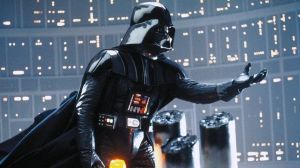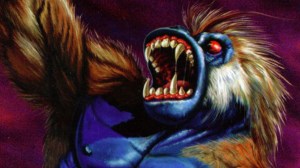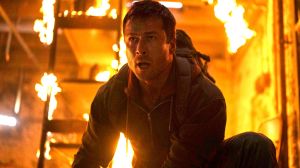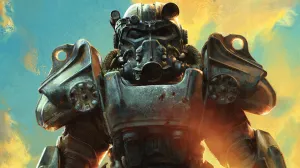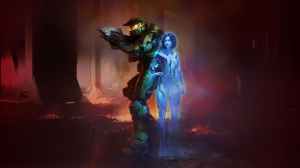The live-action Barbie movie finally made its debut in theaters over the weekend, and it became something of a genuine phenomenon. The Barbie film shattered expectations, raking in a record-breaking $162 million domestically and $344 million worldwide, and marking the best box office performance since the COVID-19 pandemic. A lot has (and will continue to be) written about the elements that made Barbie successful, including but not limited to its nearly-universal IP, its star-studded ensemble cast, and its bizarre-but-reverential tone. Just like Barbie herself, there are a multitude of things that made her movie something special — and they are things that, in a perfect world, future blockbuster films would learn from.
Videos by ComicBook.com
In particular, the domain of superhero adaptations — bringing fictional characters from Marvel, DC, and beyond into live-action — could stand to learn the right lessons from Barbie’s surprising success. Spoilers for Barbie lurk below! Only look if you want to know!
The wide appeal of Barbie became clear from its first trailers, which proclaimed that whether you love or hate the titular doll, the movie would be for you. The end result reflected that marketing tagline, with the movie simultaneously containing incredibly-niche references to Barbie’s decades-spanning history, while also opening addressing age-old complaints about her impact on feminism and body positivity. Either way, the text of Barbie could be enjoyed regardless of how much you knew about her lore going in — something that can not be said about a majority of recent superhero films. Marvel Studios’ Marvel Cinematic Universe, in particular, has grown at an exponential rate since audiences fell in love with its “Infinity Saga”, the decade-long journey from the humble shot-in-the-dark beginnings of 2008’s Iron Man to the climactic finale of 2019’s Avengers: Endgame. Actively following the MCU now requires paying attention to 32 films and an ever-growing number of Disney+ television shows — many of which, due to pandemic-era shuffling, exist in a weird middle ground between being a good story in the moment, and setting up whatever is next. The DCEU’s decade-long continuity got so confusing and largely-unrewarding that DC Studios co-CEOs James Gunn and Peter Safran are “resetting” the lore in the years to come.
Contrast that with Barbie — a movie that doesn’t alienate viewers if they don’t know about Allan and Midge’s unlikely love story, or use a post-credits scene to set up something from one of the countless animated movies. It’s just concerned with making the best Barbie movie possible. While some Barbie-savvy audience members might have a Spider-Man: No Way Home-style reaction to the discontinued Barbies and Kens introduced in the film’s second act, the movie still effectively explains the presence of Earring Magic Ken and Growing Up Skipper and why Mattel canceled them. The same approach is taken to the throughline with Barbie creator Ruth Handler (Rhea Perlman), which references her personal life and even her unfortunate financial issues. These ties don’t skid Barbie to a halt, or make a casual audience member feel alienated, they’re just part of the accessible tapestry of the movie.
On the topic of accessibility, Barbie crafts a ride that is, at times, nonsensical. There are multiple fully-choreographed musical numbers, the bridge between Barbieland and the Real World is a feat of magical realism, the Kens have a secret ability to essentially go Super Saiyan mid-fight and enter a Singin’ in the Rain-inspired dance battle, and even the office culture and design of the Mattel offices is ridiculous. In short, it is camp — something that has been expunged from much of mainstream cinema over the past few decades. Many have blamed modern superhero blockbusters for that decline in camp, both the “world outside your window” realism of the early MCU and the impossibly-gritty mythology of the DCEU. There have been some bright spots, like the fourth-wall-breaking zaniness of Marvel’s She-Hulk: Attorney at Law and the foul-mouthed dance party of DC’s Peacemaker, but much of the medium still seems concerned with minimizing its CinemaSins-esque “plot holes.”
The comics inspiring these stories, however, are often campy, and have been since Superman first debuted in 1938’s Action Comics #1. Even the “gritty” touchstones of the genre, like Watchmen and The Dark Knight Returns, arguably contain plenty of moments of mischief. The cavern between the extremes of the comics and movies could easily be shortened, if the plot and tone of a project allowed for it. And odds are, general audiences would take a liking to that, especially as movies have become even more of an escape in the post-COVID world. Barbie, undoubtedly, is escapism — but instead of grounding its world and possibly losing the emotion, the movie grounds its emotion in a heightened world, endearing audiences to the array of feelings that Stereotypical Barbie (Margot Robbie) and Ken (Ryan Gosling) experience.
That brings us to the third tenet that makes Barbie feel like an absolute breath of fresh air — its femininity. From beginning to end, the movie is concerned with telling a story about the female experience — not only the complex emotions of growing old and navigating the patriarchy, but the smaller elements too. Whether it’s the commercial for “Depression Barbie”, discomfort over cellulite, or the hilarious horror of the Kens serenading the Barbies with Matchbox Twenty’s “Push”, Barbie effortlessly weaves in elements that female viewers know all too well. (Barbie‘s version of the female experience, while not all-encompassing, also includes a diverse cast of Barbies and a transgender Barbie as simply a fact of life, as opposed to a box to check.) In the past six years since DC’s Wonder Woman movie first broke the glass ceiling for modern female superhero adaptations, those movies and shows have only begun to scratch the surface of the female experience. Again, there have been some exceptions, like the aforementioned She-Hulk and DC’s Birds of Prey (and the Fantabulous Emancipation of One Harley Quinn)… a movie that was also a passion project of Barbie star and producer Robbie. But more often than not, the female superhero movies of late have had their femininity refracted through the male-dominated worlds they exist in. It’s almost an argument that girls can have a seat at the proverbial table of superheroes — if their stories still follow as many of the male tropes as possible.
While superhero comics certainly haven’t been perfect in that domain either, there are large swaths of source material that celebrate the femininity of their protagonists, many of which general audiences don’t even know exist. If Barbie is any indicator, there is definitely a hunger for those types of stories to be told in any corner of blockbuster movies, as long as the “girly” nature is treated as a feature and not a bug. Countless social media posts and TikToks in the aftermath of Barbie‘s release have shown what it’s like when those traditionally “girly” things are spotlighted, with audiences being motivated to dress in their best pink outfit and be genuinely kind to the strangers around them, instead of feeling like another passive participant to the latest male-oriented movie. The last true example we had of anything even remotely like that might’ve been the Twilight movies, which became an event for many of the women and girls who saw them opening weekend.
Barbie is the kind of event movie we haven’t had in a while — an extravagant, hilarious, unabashedly feminist blockbuster that is able to stand on its own. While the train of superhero movies and TV shows still seems to be barreling along, here’s hoping that the future projects can try to emulate some of what made Barbie work, within the context of their own stories. It would not only help those projects stand out, but it just might make them even stronger adaptations of their source material in the process.
Barbie is now playing exclusively in theaters.


